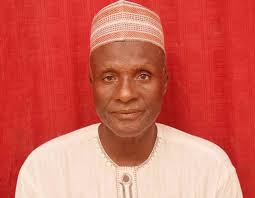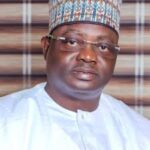“Nigerians hope that narratives of hope, fair and transparent elections, and democratic consolidation will displace the usual unpalatable narratives from INEC”.
BY AMINU HABIBU JAHUN
Since the approval of his appointment by the National Council of State as INEC Chairman, Prof Amupitan will be a recipient of torrential congratulatory messages, prayers and unsolicited advice, some in good faith, and others outrightly opportunistic.
But many pundits would rather join the prayerful and unsolicited advisers, rather than the chorus of congratulators, because congratulations could wait after he exits the job with unscathed reputation.
Prof Amupitan should be pitied rather than envied, underscoring the necessity of prayers for the Good Lord to guide him right in his assignment, and pieces of advice that could navigate him out of the lion’s den. That is what the national electoral assignment has become due to the following;
In a political environment where incumbent contestants wouldn’t restrain themselves to fairly win elections, the losers wouldn’t accept their defeat without transferring their loss aggression to the electoral umpire, especially if it is a notorious snatcher of electoral victory.
To most Nigerians, if INEC is truly independent, then the nation is equally independent. As Nigeria could hardly assert its “independence” in critical affairs (domestic or international) without the approval of powerful nations or supranational bodies; INEC is also less known to have firmly and responsibly projected its “independence”.
Like slavish electoral gadgets, many of the Chief Electoral Officers can hardly distinguish loyalty to principals and to the nation, manufacturing electoral heists to please political masters, rather than to responsibly discharge constitutional burdens. At times going the extra mile to declare election results before the conclusion of collations.
As a fallout of the above, very few INEC bosses exited their jobs without eroding their hard-earned reputation.
Besides Ephraim Akpata whose tenure was short, and Professor Jega, the trio of Dr Abel Guobadia and Prof Maurice Iwu and Prof Mahmud Yakubu, despite judicial confirmations of their elections, are believed to have been partial in the elections they supervised in 2003, 2007 and 2023, leaving dark imprints on their post INEC assignment reputation.
Therefore, after the loss of public confidence in INEC, Prof Amupitan, would require more than 24/7 hours in a day to set the organisation on an acceptable trajectory to Nigerians. He would have to fight to redeem INEC’s image and restore public confidence in the electoral agency, and Nigeria’s democratic project.
So far, the worst election was the Maurice Iwu 2007 supervised poll whose winner was declared before the conclusion of collations, who publicly condemned the conduct of the elections, and the best poll was the 2015 Jega supervised election, whose incumbent loser vouched its fairness by congratulating the winner, one could construct the Iwu and Jega election management models.
The Jega model is premised on the following:
1. Continuous engagements/consultations with national and global electoral stakeholders;
2. Proactive technologically driven electoral reforms;
3. Holistic implementation of the Electoral Act in the elections;
4. Zero tolerance for subjective human intervention in the electoral processes.
And the Iwu election model was underpinned by:
1. Callous indifference to critical electoral stakeholders;
2. Wanton breach of crucial provisions of the Electoral Act;
3. Subjective human intervention in the electoral processes;
4. Deliberate creation of electoral chaos for the tribunals to settle.
The Iwu model produced the electoral mess of 2003, 2007 and to an extent the 2023 infamy (skipping real time transmission of results, and leaving the chaos for the tribunals to sort out), whilst the Jega model midwifed the transparent 2015 election. Whereas Dr Iwu used the Electoral Act as a Trojan horse to undermine democracy, Prof Jega holistically deployed it to entrench democracy.
The new INEC boss, Prof Amupitan will be confronted with a dilemma: the choice of an election model, signposting the democratic legacy he wishes to leave behind. To a jurist, legal scholar and Senior Advocate of Nigeria, SAN, who might have been horrified by the conduct of the 2007 election as the late President Yar’Adua was, the choice of model wouldn’t be a problem.
To deepen Nigeria’s democracy, Prof Amupitan has to be at an arm’s length with the Iwu model because it corrosively debases democracy by trampling peoples electoral preferences.
Based on the conduct of the 2015 election, the second freest after the annulled June 12 election, its Chief Returning Officer, Prof Jega has become an electoral celebrity, the toast of local, regional and global electoral stakeholders leaving a lasting imprimatur on democratic deepening in the nation and beyond.
The Chief Electoral Officers who substantially, and to a limited extent used the Iwu model to conduct elections are impliedly antidemocratic. However, 2027 would beyond reasonable doubt prove that Prof Amupitan wouldn’t belong to the club of electoral impropriety.
Nigerians hope that narratives of hope, fair and transparent elections, and democratic consolidation will displace the usual unpalatable narratives from INEC. Their torrential prayers and congratulatory messages, underscore the confidence reposed in him, that he would only supervise the electoral contests according to the rules in the Electoral Act and nothing else.
…Jahun, a public affairs analyst writes from Dutse.








